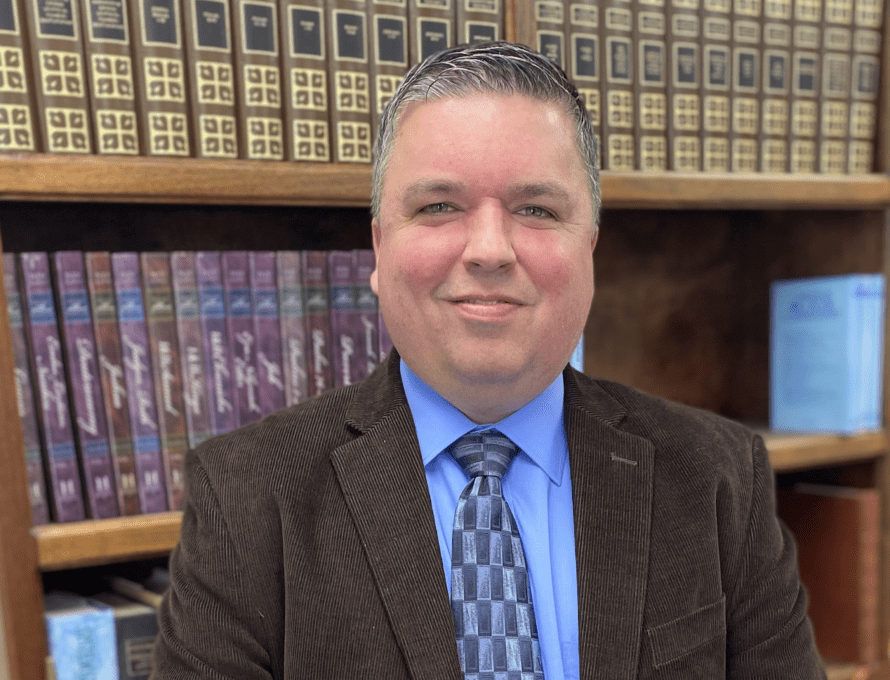Our world, as someone has said, is “awash with words.” Words wake us, entertain us, console us, pester us, defend us, teach us, lull us to sleep.
From infancy, we learn how – with a puff of the diaphragm, a tightening of the throat, a twist of the tongue and curling of the lips – to speak a simple word, like “water.” As children, we struggle to decipher and then scratch on paper the intricate lines and curves that make up the written word, “w-a-t-e-r.”
Then, as we age, we become used to words – taking them for granted, as we often do our own bodies and breath.
But Helen Keller never took words for granted. Deaf, mute and blind, she spent the first six years of her life with no notion of language. But then a devoted teacher named Anne Mansfield Sullivan entered her life.
“Before my teacher came to me,” Keller later recalled, “I lived in a world that was a no-world. I cannot hope to describe adequately that unconscious yet conscious time of nothingness. I did not know that I knew aught, or that I lived or acted or desired.”
For days and then for months, Sullivan traced letters and words into Keller’s hands, laboring to show her the value and meaning of a single word. Finally, when Keller was 7 years old, she made a breakthrough. Keller recounted the moment in her 1902 autobiography, The Story of My Life:
“We walked down the path to the well-house, attracted by the fragrance of the honeysuckle with which it was covered,” she wrote. “Someone was drawing water and my teacher placed my hand under the spout. As the cool stream gushed over one hand she spelled into the other the word water, first slowly, then rapidly.
“I stood still, my whole attention fixed upon the motions of her fingers,” she recalled. “Suddenly I felt a misty consciousness as of something forgotten – a thrill of returning thought; and somehow the mystery of language was revealed to me. I knew then that ‘w-a-t-e-r’ meant the wonderful cool something that was flowing over my hand. That living word awakened my soul, gave it light, hope, joy, set it free! There were barriers still, it is true, but barriers that could in time be swept away.”
Human words and human languages are, as linguist Charlton Laird once wrote, a “miracle.” Noah Webster, famous for creating Webster’s Dictionary, called language “the immediate gift of God.”
Words are a two-fold miracle and a two-fold gift from God. For through words we know ourselves and our world, as Keller learned so vividly as a child. This is a gift in itself. But, also through words, we know God. The same God who gives us a capacity to speak and write and read now speaks to us today through His written Word, the Bible.
Yet we take Scripture for granted too often, as well. We forget what a miracle we hold in our hands each time we open our Bibles.
Indeed, when I open my Bible each morning, a third gift – a third miracle so often taken for granted – presents itself to me: For, when I open Scripture, I can understand the words. The words appear on the page not in the original Hebrew or Greek, but in a reliable English translation.
Five hundred years ago next year, the early English Reformer William Tyndale became a willing exile from his homeland so that he could translate God’s Word into the English language – an effort that would lead to his death by burning a dozen years later.
Even so, men and women through the centuries have devoted themselves, and sacrificed their lives, to translate God’s Word into the languages of the world. Like Tyndale, 16th-century Spanish Bible translators Juan Pérez de Pineda and Casiodoro de Reina lived in exile. Nineteenth-century Baptist missionary Adoniram Judson suffered illness and imprisonment in his effort to translate Scripture into the Burmese. For 27 years Protestant missionary Robert Morrison labored to translate God’s Word into Chinese. And, during the last century, Brother Andrew – as he is called – smuggled Bibles past the Iron Curtain and other barriers to feed Christians hungry for God’s Word.
Today, more than 7,300 languages are spoken among the world’s roughly 8 billion people. But, as of last fall, the Bible has been fully translated into only 724 of these languages.
With that in mind, let’s remember the miracle of words we hold in our hands as we open our Bibles each morning. And, remembering those who still need Scripture in their own tongues, let’s pray they can soon read and hear God’s Word and speak to Him in praise.
“O for a thousand tongues to sing // My great Redeemer’s praise, // The glories of my God and King, // The triumphs of His grace.”

